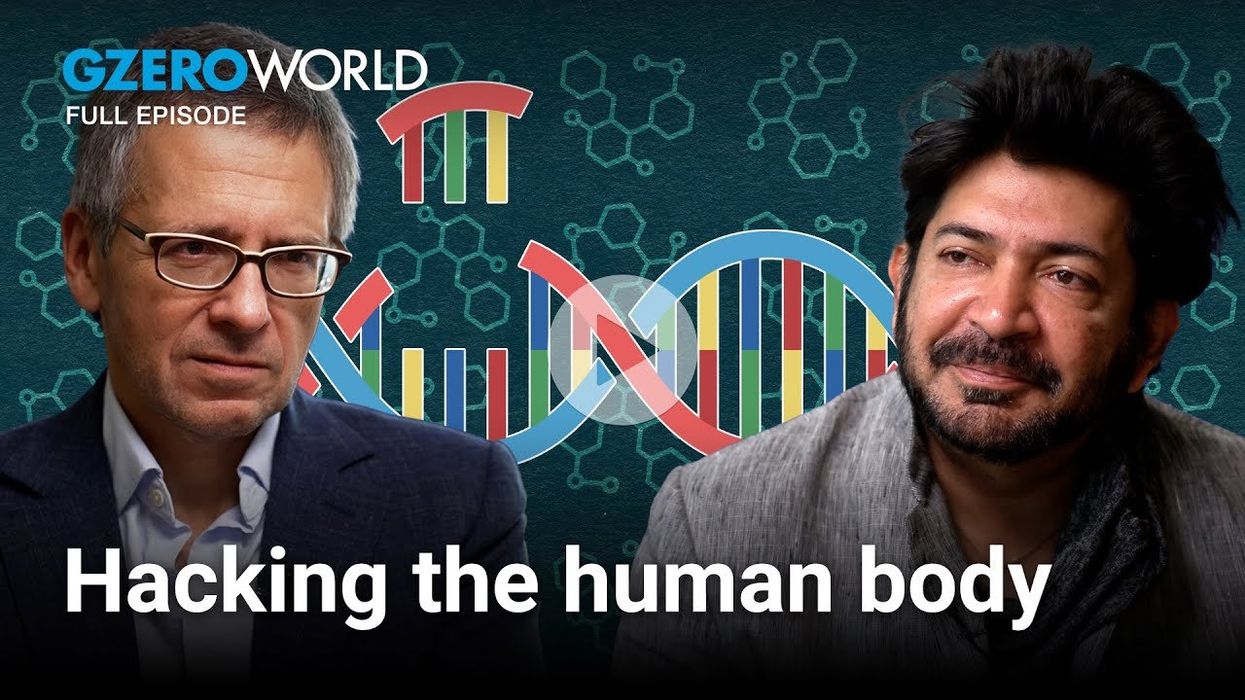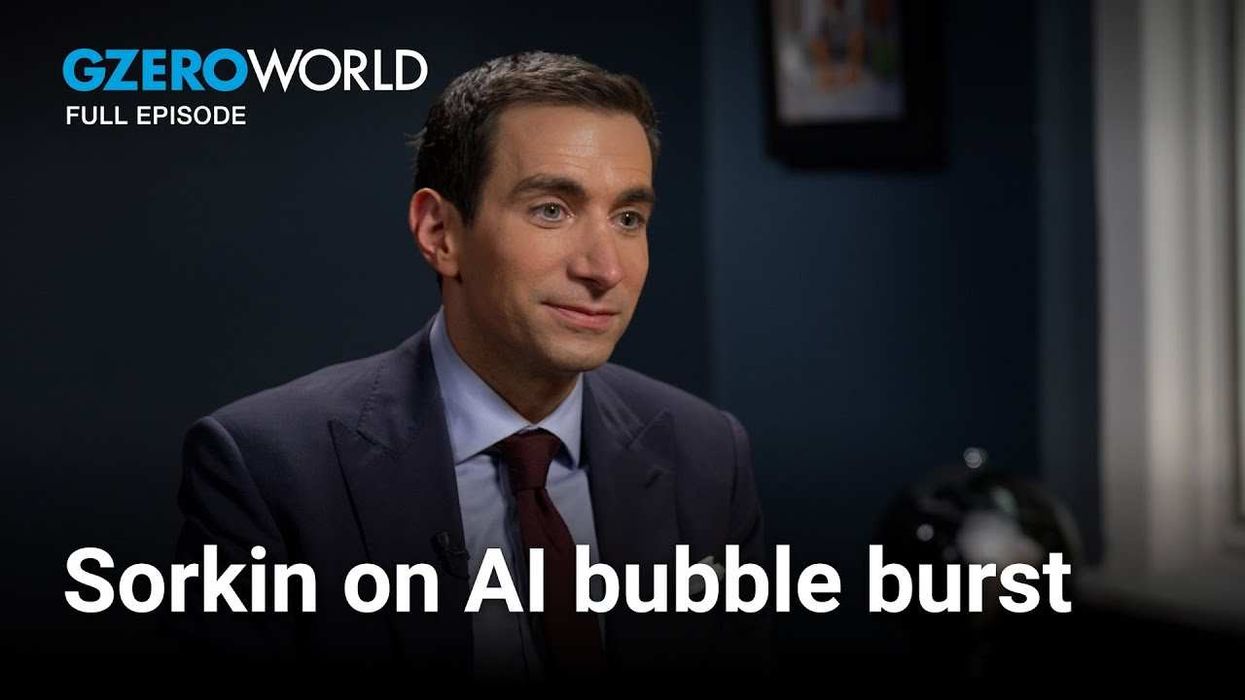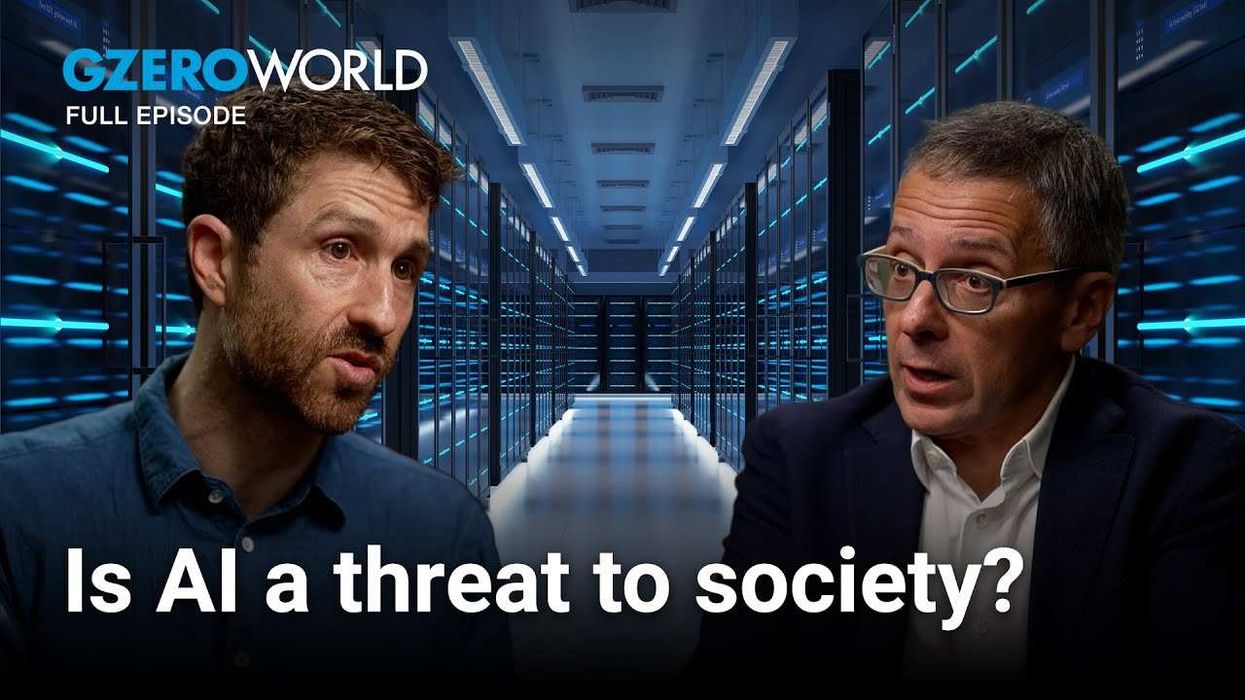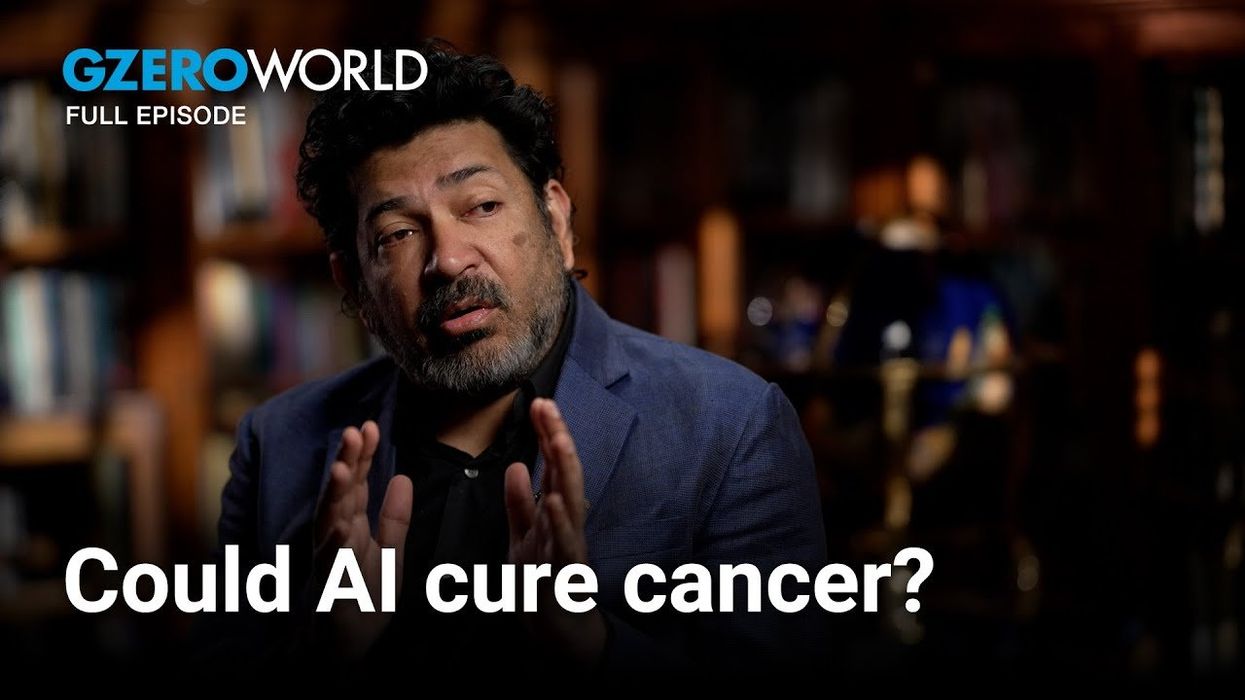VIDEOSGZERO World with Ian BremmerQuick TakePUPPET REGIMEIan ExplainsGZERO ReportsAsk IanGlobal Stage
Site Navigation
Search
Human content,
AI powered search.
Latest Stories
Start your day right!
Get latest updates and insights delivered to your inbox.
The benefits and risks of human enhancement using CRISPR, AI, and synthetic biology.
On GZERO World, Ian Bremmer sits down with physician and biologist Siddhartha Mukherjee to explore the recent advances, benefits, and risks of human enhancement with technology. Mukherjee’s latest book, “The Song of the Cell,” explores the history and medical science behind “the new humans,” a term he uses to describe people who have been altered in some way, initially for medical purposes and, potentially in the future, for enhancement. Bremmer and Mukherjee discuss the transformative impact of new tools like CRISPR gene-editing, AI-powered prosthetics, and brain implants that can help treat everything from movement disorders to depression.
“The idea of the human is changing,” Mukherjee says, "CRISPR, synthetic biology, prosthetic biology with AI, and cloning of individuals—that’s what I mean by the new human.”
These new medical technologies could radically improve our understanding of health and the human body, leading to a future of new medicines, cures for fatal diseases, expanded cognitive capabilities, and even communication with deceased loved ones. But there are also ethical implications to tinkering with human nature, including eugenics as a result of gene editing, the potential for AI to create toxic molecules, and the danger of real-time experimentation on the ecosystem with CRISPR. How do we balance the life-changing potential of biotech tools without changing the very nature of what it means to be human?
Watch GZERO World with Ian Bremmer every week on US public television (check local listings) and at gzeromedia.com/gzeroworld.
Keep reading...Show less
More from GZERO World with Ian Bremmer
In Wikipedia We Trust?
December 15, 2025
'Godfather of AI' warns of existential risks
December 08, 2025
Could the US really invade Venezuela?
November 24, 2025
Will "AI euphoria" crash the markets?
November 17, 2025
Is the US falling behind China?
November 10, 2025
The dangers of unchecked AI
October 27, 2025
Republicans and Democrats are more divided than ever
October 20, 2025
Did Netanyahu got everything he wanted in Gaza peace deal?
October 04, 2025
Putin's drone battle for Ukraine's skies
September 29, 2025
The world is on fire and the UN is running out of money
September 19, 2025
Will the clean energy revolution leave the US behind?
September 15, 2025
How AI is transforming medicine, and the cancer fight
September 07, 2025
The global refugee crisis is at breaking point
August 25, 2025
India vs. Pakistan: Rising tensions in South Asia
August 16, 2025
As Trump pressures universities, what's really at stake?
August 10, 2025
Are Trump's tariffs the end of the free trade era?
August 02, 2025
Is the US Intelligence community at a breaking point?
July 21, 2025
The dangerous new nuclear arms race
July 14, 2025
President Trump takes on the Judiciary
June 14, 2025
What’s behind Trump & Musk’s public feud?
June 10, 2025
Could China invade Taiwan?
June 09, 2025
Can Pope Leo XIV heal the Church–and his own country?
June 02, 2025
Why Sen. Chris Van Hollen stood up to Trump
May 12, 2025
The battle for free speech in Donald Trump's America
May 05, 2025
50 years after the Vietnam War
April 28, 2025
Will Russia agree to a ceasefire in Ukraine?
April 14, 2025
The rise of Elon Musk's DOGE under Trump
March 31, 2025
Trump’s trade war: Who really wins?
March 24, 2025
China’s next move
March 17, 2025
The fight to decide Ukraine's fate
March 02, 2025
Defending Ukraine and Europe without the US
February 24, 2025
What if Palestinians want to leave Gaza?
February 18, 2025
Who gets to decide Gaza's future?
February 17, 2025
Trump's health agenda—from RFK Jr. to leaving WHO
February 07, 2025
Europe's new future with Trump 2.0
February 03, 2025
Big Tech under Trump 2.0
January 20, 2025
Francis Fukuyama on the new leaderless global order
January 13, 2025
About the Show
Every week on GZERO World with Ian Bremmer, Ian explains the key global stories of the moment, sits down for an in-depth conversation with the newsmakers and thought leaders shaping our world.
Watch GZERO World on US public television and on GZERO's YouTube channel. GZERO WORLD with Ian Bremmer is a local public television program presented by THIRTEEN PBS.
GZERO Series
GZERO Daily: our free newsletter about global politics
Keep up with what’s going on around the world - and why it matters.





















































